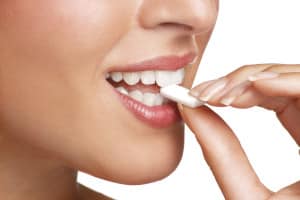 When you visit our practice, you may feel like it’s important to focus on asking clinical-based questions, such as those about particular procedures, instruments, or disorders. As a result, a question as simple as, “Is chewing gum safe for my oral health?” is something you might sweep under the rug. However, that means you go home without the answer you were hoping for. First, remember that we want you to be open with us – ask your questions, even if they seem tiny. The more you know, the more effectively you can protect your smile. For now, let’s answer that chewing gum question.
When you visit our practice, you may feel like it’s important to focus on asking clinical-based questions, such as those about particular procedures, instruments, or disorders. As a result, a question as simple as, “Is chewing gum safe for my oral health?” is something you might sweep under the rug. However, that means you go home without the answer you were hoping for. First, remember that we want you to be open with us – ask your questions, even if they seem tiny. The more you know, the more effectively you can protect your smile. For now, let’s answer that chewing gum question.
Frequently Asked Questions: Chewing Gum
Question: Is chewing gum dangerous for my oral health?
Answer: Sometimes it is! If you purchase gum that has sugar in it, it can lead to tooth decay. This occurs because the bacteria in your mouth eat sugars, digest them, and then emit acids onto your teeth. If your teeth are coated in sugar, they will soon be coated in acid, which is very damaging and can lead to cavities.
Question: Does that mean chewing gum is sometimes safe?
Answer: Yes! If you choose sugarless gum (especially one sweetened with xylitol), you can actually expect good things. This is because the sweeteners are not composed of sugar, so the bacteria in your mouth don’t feast upon them. Instead, the gum helps physically remove both food and bacteria from teeth. It can also increase your flow of saliva, which helps swish away bacteria and food.
Question: Is sugarless chewing gum always okay for my oral health?
Answer: Nope! If you have something the gum can become wound around or affixed to, such as metal braces, a dental bridge, or otherwise, we encourage you to avoid gum (or to speak with us about potential options), so you keep your dental work safe.
